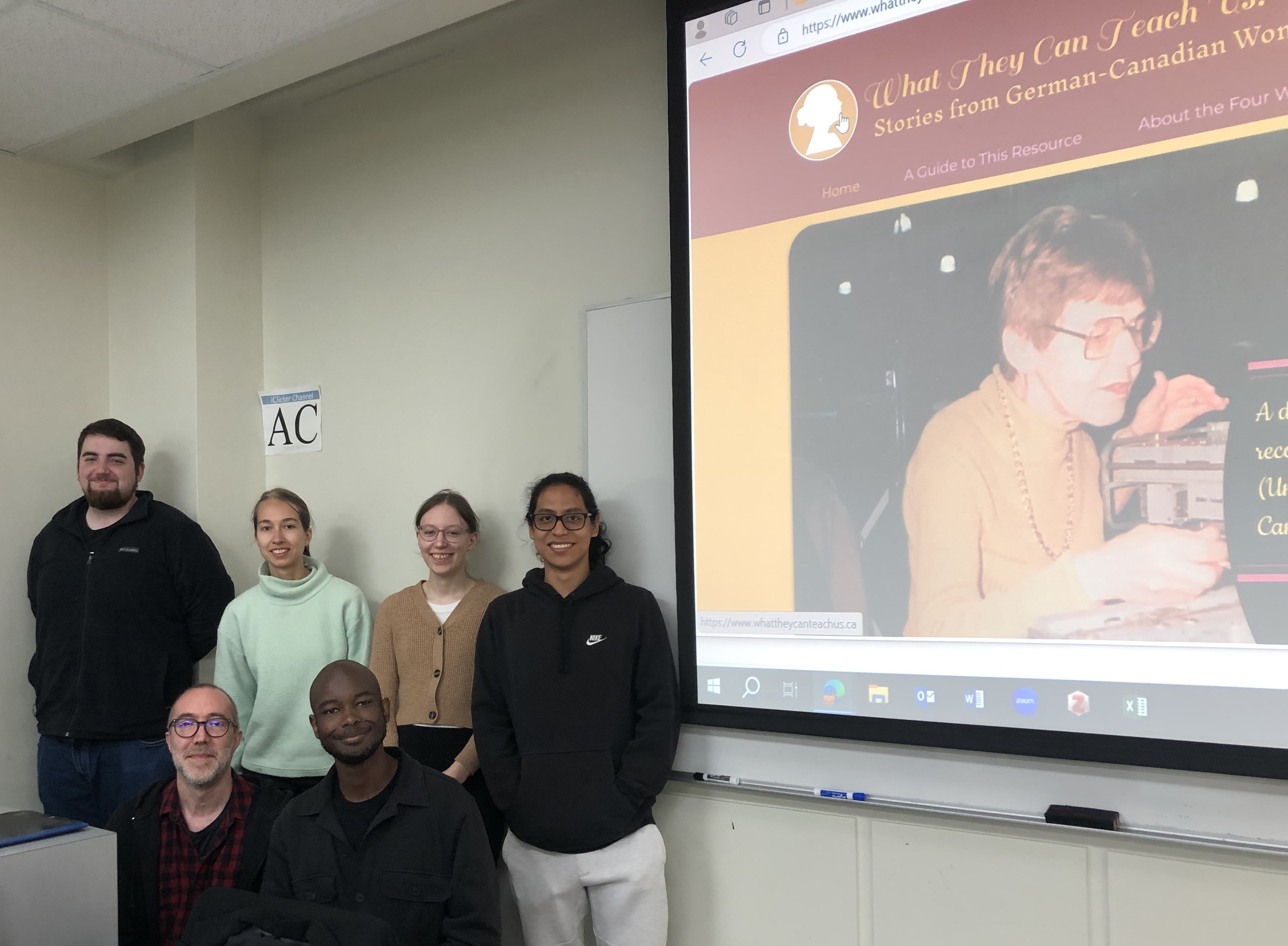Last Thursday, Eleonore and I had the privilege of sharing What They Can Teach Us with the Discovering German Life and Culture class at the University of Manitoba. We were invited by Dr. Lars Richter to give a brief presentation about the website, its features, and to share one of the interviewee’s stories with the class.

(photo: Eleonore Hein)
We began with a brief introduction to Oral History, which allowed students to form the foundational knowledge needed to connect to the website’s interviewees. We based our presentation and class activities on the first lesson plan found on the website, and got students brainstorming about what it means to think historically. We talked in-depth about the first three tenets of the Historical Thinking model: Historical Significance, Primary Source Evidence, and Continuity and Change. From there, we introduced Barbara’s story and played an audio excerpt from her interview alongside the transcript, then asked students to engage critically with her account of history through a series of questions.
We were thrilled with how attentive the students were in learning about What They Can Teach Us, and their contributions linking Barbara’s story to the Historical Thinking concepts. We hope they take these teachings with them throughout their academic journey and continue to explore the website and its resources on their own.
In case you have not already checked out What They Can Teach Us, here is what you can find on the website: interviews with four German immigrant women who migrated to Canada in the early 1950s, many on contracts as domestic servants through the Assisted Passage Fare Scheme funded by the Canadian government. The website features unedited, digitized audio recordings and thematic transcript excerpts based on key questions asked in the interviews. You will also find a guide to using the website’s functions, lesson plans for various grades, and further resources on Oral History and Historical Thinking to explore independently. The website is accessible to users in English, French, and German. By promoting the use of Oral History and the stories of German migrants in multiple fields—not just history—we hope to show students and teachers alike that the lived experiences of everyday people are crucial to democratizing history and seeing the full picture.
To learn more about the team and impetus behind What They Can Teach Us, check out our launch post and be sure to keep an eye out for the related article published in the Spring 2024 issue of Oral History.
